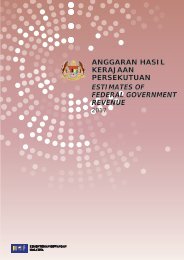WEALTH
2c0esX1
2c0esX1
Create successful ePaper yourself
Turn your PDF publications into a flip-book with our unique Google optimized e-Paper software.
MICRO<br />
A MIXED<br />
BLESSING<br />
With increasing life expectancy,<br />
longer periods of poor health are<br />
becoming a costly risk in old age<br />
One of the greatest achievements in<br />
human history is increasing life<br />
expectancy. With every passing day,<br />
we gain roughly six hours of life, making time<br />
one of the few resources that grow as we spend it.<br />
But like everything else in life, longer lives<br />
come with a price tag. Despite scientists’<br />
efforts to boost healthy aging, healthcare costs<br />
seem set to rise. “Most of the progress now<br />
being made is in reducing death rates, but the<br />
prevalence of diseases associated with old age<br />
is not going down,” Christopher Murray,<br />
director of the Institute for Health Metrics and<br />
Evaluation at the University of Washington,<br />
told PROJECT M.<br />
A physician and health economist by<br />
training, Murray is uniquely positioned to<br />
assess the world’s state of health. He cofounded<br />
the Global Burden of Disease (GBD)<br />
approach, an international scientific project<br />
which, since 1990, has generated more than 10<br />
billion data points from 188 countries to<br />
capture death and disability from more than<br />
300 diseases and injuries.<br />
“Mental health, musculoskeletal and<br />
neurological disorders account for the lion’s<br />
share of disability,” he says. “Their prevalence<br />
is stagnating at best and increasing in some<br />
countries. Consequently, the lifetime cost, the<br />
total health spending for someone who is<br />
insured, will undoubtedly go up.” Where<br />
dramatic improvements in global health are<br />
occurring, they are primarily due to a decrease<br />
in infectious diseases as a cause of death.<br />
FOUR STEPS FORWARD, ONE BACK<br />
Murray sees aging as a blessing with<br />
drawbacks. “Aging is great news,” he says, but<br />
what concerns him is that there is no<br />
indication of compression of morbidity, the<br />
idea that sick years could become condensed<br />
into a short period at the end of longer lives.<br />
“The fact that more people are living into<br />
their 80s and 90s, an age where most have five<br />
or 10 different health conditions, has<br />
significant ramifications for individuals in<br />
terms of their quality of life and in terms of<br />
healthcare cost,” he concludes.<br />
Take Japan, where life expectancy for men<br />
has increased four years since 1990, according<br />
to the GBD study. But only three of them will be<br />
spent in good health; one quarter of the time<br />
gained is spent in poor health.<br />
Healthcare costs for those years spent in<br />
poor health arrive on top of the need to<br />
increase private retirement savings. “An<br />
42 • Allianz



